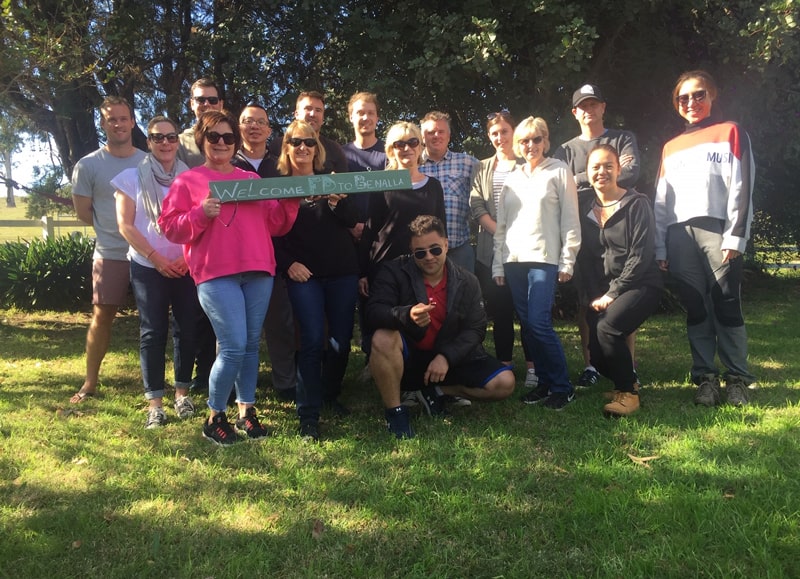A Changing Environment
As the financial year winds down, it signifies the end of a tumultuous period dominated by the Royal Commission, the extreme breadth of its findings and, in some instances at least, its ostensibly positive suggestions. Looking toward the new financial year, it is shaping up as one in which prospects for the domestic economy and the finances of Aussie families are shaky at best.
But don’t fret just yet! We are committed to helping our clients navigate the tricky terrain of financial growth strategies in what will be a questionable market. In doing so we aim to reduce stress and improve fiscal outlooks for all our clients.
As such, in this edition of Exchange, we kick off with important information about changes to legislation regarding insurance policies available through super accounts and how you may be affected. We also explore the ever-evolving future of payments as cash becomes less of a preference for many Australians and businesses. Finally, we recap our business strategy retreat and the extraordinary culture that we cultivate across the firm.
Superannuation Insurance: To Opt In Or Not?
In the budget released in March this year, a significant overhaul of insurance policies available via a super account was announced and these changes are about to be enacted.
Essentially, as part of the “Protecting Your Super” scheme, from 1 July if you are not actively contributing to a super account continuously for 16 months (or rolling over), you have to opt in to maintain your insurance cover or it will be cancelled.

While insurance cover is extremely valuable and can be a lifeline in many instances, if you have multiple super accounts and are maintaining insurance policies through them, you are essentially paying for insurance multiple times. The flow-on impact of this is that the pool of money available to you in retirement suffers as a result. In this case, if you roll all your accounts over and maintain cover through a single account, you will effectively be saving money and making your retirement more comfortable.
To make matters a little more complicated, there are multiple types of insurance available through your super account and not all of them will be relevant for each individual. As many policies involve death, disability or sickness, it’s not a huge amount of fun thinking about the instances in which you need to claim, but despite this, we’ve outlined below a brief overview of the key types of insurance you should consider:
Death
- Paid as a lump sum benefit to your estate or beneficiaries upon your death.
- Provides the option of being paid to you should you become terminally ill.
Total and Permanent Disablement
- Paid as a lump sum in the instance you become “totally and permanently disabled”.
Salary Continuance Insurance (Income Protection)
- Pays a monthly benefit which replaces a portion of the income lost if you are unable to work at your full capacity due to sickness or injury.
- As an example, you may be able to receive up to 75% of your salary through this type of insurance if you are injured or sick for a prolonged period.
Trauma
- Paid as a lump sum for financial support in the event you suffer a specific medical condition such as cancer, a heart attack or a stroke.
- It is important to note that this payment may only be available as a linked benefit to your main policy held in-side of super.
It should be noted that the new insurance legislation does not apply to:
- Self-managed superannuation funds or small APRA funds.
- Members whose employer makes contributions on their behalf as well as meeting superannuation guarantee obligations (i.e. the employer covers the full cost of an individual’s insurance premiums).
- Defined benefit members.
- Australian Defence Force (ADF) Super members (or a person who would have been an ADF Super member if they had not exercised choice).
If you are going to be affected, you will receive a letter informing you of the obligations required and implications of opting in or not. Unfortunately, if you do not reply and confirm you want to keep the cover then you risk the fund cancelling it. Subsequently, if you want to get the cover re-instated later on down the track you will be required to go through medical underwriting – an inconvenience that many people do not want to have to endure.
If you have any questions or would like clarification on your current cover and what you may require in the future, please contact your adviser and we will walk you step-by-step through the ins and outs of the policies available to you from your specific super account.
The Evolution of Payment Systems and the Decline of Cash
Cash used to be king, but payment gateways have evolved and continue to do so and this directly impacts the way you spend – and track expenditure – of your hard earned money.
The decline in popularity of cash is essentially due to retailers trying to cut down on transaction time, with cash handling, giving change, conducting reconciliations and going to the bank all being factors behind this shift in mindset. But it doesn’t stop there. Traditional card payment options such as credit are waning in popularity once again because of speed of transaction.
Despite horror stories of scams and theft via methods such as hacking, the rapid rise of contactless cards for small payments has eclipsed these conventional payment methods and will continue to do so, according the CBA’s whitepaper “Turning Point – Calling Time on Cash”.
Highlighting the shift in trends, there are approximately 30,000 ATMs compared with 975,000 EFTPOS terminals Australia-wide and, according to data collected by the RBA, cash payments dropped from 69% of all transactions in 2007 to 37% in 2016. Since 2016, that percentage will undoubtedly have dropped even further with the implementation of the New Payments Platform (NPP) in February of 2018.

In the year since the NPP launched, it has accounted for 114 million transactions totalling $95 billion and this is only going to rise. The simplicity of using a mobile phone or a smart watch to make payments not only suits retailers as it reduces risk, lowers costs and enables an enhanced customer experience, it also resonates with consumers as it requires less effort, less time and less reliance on stuffing a wallet or purse full of cards, cash and coins.
The upshot is that businesses that are not set up to take digital transactions – or those that charge a fee for using contactless cards on small purchases – are going to struggle. Furthermore, the banks will be salivating over the prospect of holding onto your cash.
So, if you haven’t already, be prepared to visit the app store on your phone and get your digital wallet set up!
Taking the Office Offsite
We readily acknowledge that our people represent our greatest asset and strength as a firm, operating as a cohesive unit that share the same vision, values and commitment to outstanding client service.
Having recently merged with accounting firm Harding & Co, it was a great opportunity to conduct an internal conference to assist in maintaining our hardworking, inclusive and fun culture – and to also discuss key strategies in the lead up to the new financial year.
We now have a strong accounting team of six employees including a permanent accountant working out of our CBD office. It was fantastic to have a bonding session that enabled us to become better acquainted with one another. Unfortunately Mike Harding was not able to attend as he was taking part in the 2019 Yokohama Norra Mexican 1,000 – a six day off-road racing event on the Baja Peninsula. That turned out to be a story in itself!
Taking full advantage of the beautiful surrounds of a farmstead situated in Singleton in the Hunter region, we took part in entertaining team building activities including clay target shooting, riding motorbikes and hiking. We also enjoyed the outdoor spa and generally had a great time.

But it wasn’t all play! We ran in-depth information and training sessions, starting with the future of the finance industry in the wake of the Royal Commission. Plans were unveiled for an enhanced, firm-wide focus on IT, with sophisticated systems to be implemented that will enable us to access data in new and functionally efficient ways. Damien also facilitated a discussion on strategies for growth, which include bringing on-board more advisers and installing a permanent adviser in the city office.
A fun time was had by all and we gained some great insights into what the upcoming financial year will hold while shining a light on what makes Financial Decisions different to other financial services companies including:
- The long-term personal relationships we foster with our clients.
- The breadth of services we offer under one roof and how this assists in meeting the changing needs of our clients and their families.
- The trust and mutual respect upon which the firm is founded and how this impacts on our clients’ decisions to partner with us over the course of their working life.
- Our proud independence and ability to operate without external influence as a result of our holding of both AFSL and ACL.
Overall, the company retreat was an extremely worthwhile exercise which reinforced our culture and will shape our approach for the years ahead.
We are Always Here for You
If you would like assistance with any aspect of your wealth creation and management strategies, please contact your adviser or feel free to call us on (02) 9997 4647.
Disclaimer: This publication has been compiled by Financial Decisions (AFSL/ACL Number 341678). Past performance is not a reliable indicator of future performance. While every effort has been taken to ensure that the assumptions on which the outlooks given in this publication are based on reasonable data, the outlooks may be based on incorrect assumptions or may not take into account known or unknown risk and uncertainties. Material contained in this publication is an overview or summary only and it should not be considered a comprehensive statement on any matter nor relied upon as such. The information and any advice in this publication do not take into account your personal objectives, financial situation or needs. Therefore you should consider its appropriateness having regard to these factors before acting on it. While the information contained in this publication is based on information obtained from sources believed to be reliable, it has not been independently verified. To the maximum extent permitted by law: (a) no guarantee, representation or warranty is given that any information or advice in this publication is complete, accurate, up-to-date or fit for any purpose; and (b) Financial Decisions nor its employees are in any way liable to you (including for negligence) in respect of any reliance upon such information or advice. June 2019
Contact: Financial Decisions PO Box 484 Mona Vale NSW 1660, T 02 9997 4647, F 02 9997 7407

